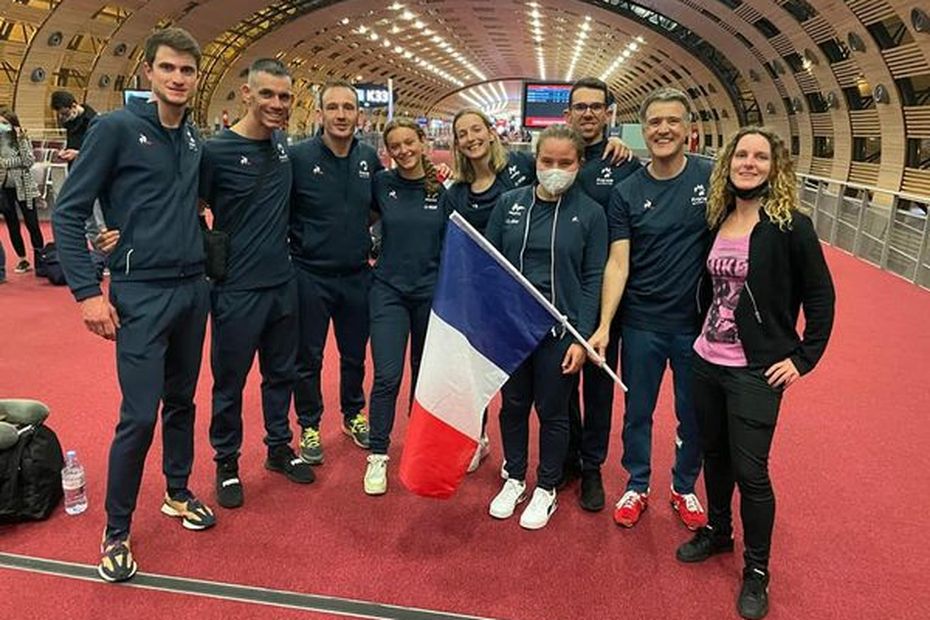Théo Moreau and Marie Rivereau participated in the summer Deaflympics, at the beginning of May, in Caxias do Sul, in Brazil. They both return to Maine et Loire with gold medals, he in cycling against the clock, she in the pole vault. They were invited this Monday noon in our newspaper.
They were 56 athletes selected to defend the colors of France at the 24th Deaflympics.
Among them Théo Moreau and Marie Rivereau, two athletes from Pays de la Loire.
Théo won the time trial in cycling, Marie cleared 4 meters in the pole vault.
Back in France, and before each resuming the course of their sports season, they came to testify to their experience on the set of our newspaper.
The two medalists received congratulations from Christophe Béchu, now Minister Minister Delegate in charge of Territorial Communities
Théo and Marie are not the only French people to have distinguished themselves in Brazil. The French team won 16 medals.
She ranks 8th in the table of nations rewarded.
Present in ten disciplines (athletics, badminton, cycling, football, golf, judo, swimming, table tennis, tennis, volleyball), the Blues have mainly distinguished themselves in cycling (6 medals including 3 gold), in judo ( 4 medals) and in athletics (3 gold medals).
–
It’s the equivalent of the Olympic Games for hearing people. The Deaflympics are organized every two years, alternating summer/winter, as are the Paralympic Games.
They are the meeting place for the deaf sports elite. More than 6,000 athletes from more than 70 countries met there from May 1 to 15 in Caxias du Sul, Brazil, for the 24th edition of the summer Deaflympics.
It is a Frenchman, Eugène Rubens-Alcais, President of the French Federation of Sports for the Deaf, who is at the origin of these Deaf Olympics. A sports activist, this great figure in deaf history imagined that an international sporting event was the best response to the discrimination suffered by deaf people.
–
The “International Silent Games” were launched in Paris in August 1924. The first sports competition exclusively reserved for people who are hard of hearing or deaf, the Silent Games were renamed Deaflympics in 1925.
“Beyond sport, this competition has made it possible, since its creation, to change mentalities and the outlook on deaf people around the world. But even today, specific games for deaf athletes are still necessary. Because beyond the sporting aspect, they respond to a specific communication need on the sports field, as well as in the social interaction which is an equally vital element of games” (excerpt from the Deaflympics 2022 press kit)
–



